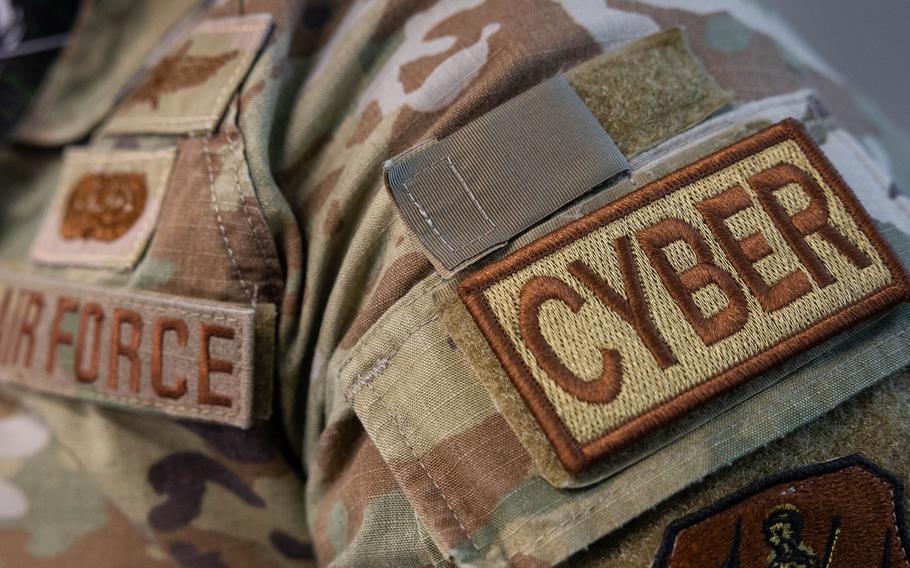
An airman wears a cyber duty identifier patch on his uniform. OpenAI, the artificial intelligence company behind ChatGPT, is working with the Pentagon to develop open-source cybersecurity software. (Matthew Lucibello/U.S. Army)
The artificial intelligence company behind the popular chatbot ChatGPT has teamed up with the Defense Department to explore ways of using its technology to prevent veteran suicide.
It’s one of several ongoing initiatives by OpenAI and the Pentagon, the company’s vice president of global affairs, Anna Makanju, said during a Bloomberg House interview Tuesday in an open discussion at the World Economic Forum in Davos, Switzerland.
The comments followed OpenAI’s removal last week of wording on its usage policies page that had banned its technology from “military and warfare applications,” sparking concern among those wary about AI’s weaponization.
However, OpenAI says it maintains a ban on the use of its tools for developing weapons, destroying property or harming people, stipulations that are still in its policy.
The wording was changed to provide more nuance, as some military-affiliated activity is “aligned with what we want to see in the world,” Makanju said in the taped interview.
“We’ve been doing work with the Department of Defense on cybersecurity tools for open-source software that secures critical infrastructure,” Makanju said. “We’ve been exploring whether it can assist with (prevention of) veteran suicide.”
She did not provide further details about the programs.
In August, OpenAI announced its participation in the AI Cyber Challenge, a two-year competition led by the Pentagon’s Defense Advanced Research Projects Agency, in which various tech experts aim to create cutting-edge cybersecurity tools.
When asked whether the U.S. had requested OpenAI to restrict its cooperation with foreign militaries, Makanju said no. However, the company’s current focus is on American security agencies, she added.
“We have always believed that democracies need to be in the lead on this technology,” she said.
OpenAI, founded in 2015, has developed a range of AI tools. It says its mission is to ensure AI “benefits all of humanity.”
In 2022, the Pentagon established the Chief Digital and AI Office, dedicated to “integrating and optimizing” AI capabilities across the department.
The office helped launch an updated AI strategy for the Pentagon in November to allow the U.S. to maintain a competitive advantage in fielding the emerging technology, according to a Defense Department statement at the time.
“As commercial tech companies and others continue to push forward the frontiers of AI, we’re making sure we stay at the cutting edge,” Deputy Defense Secretary Kathleen Hicks said in the statement.